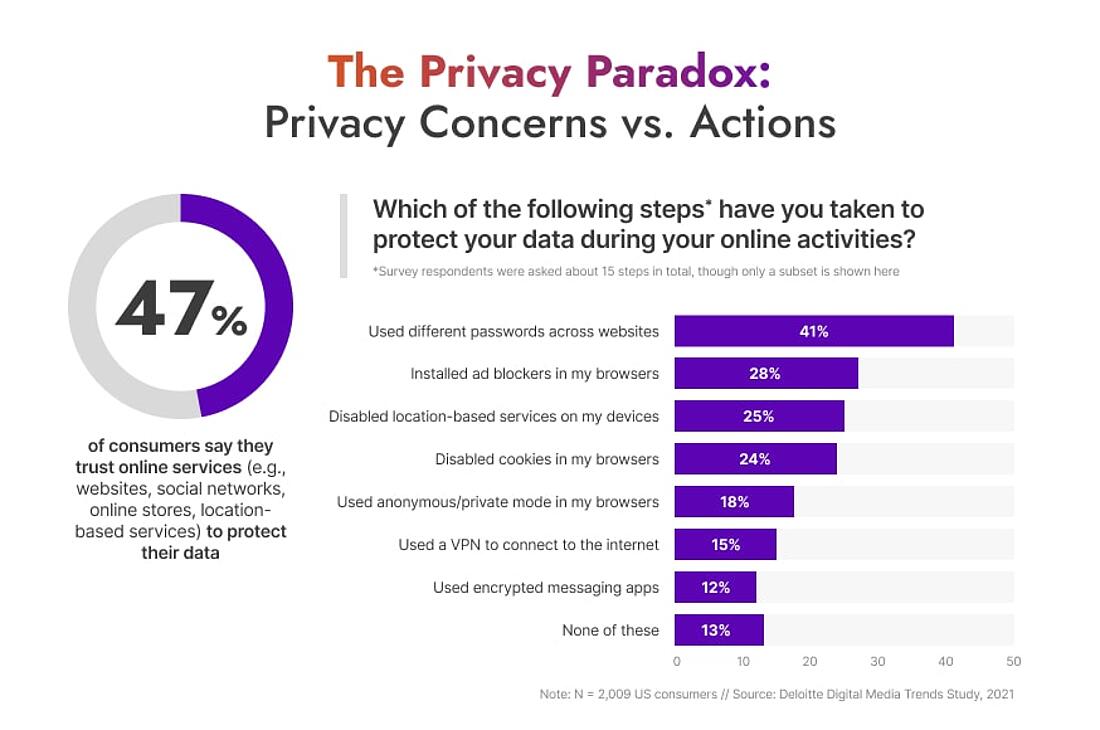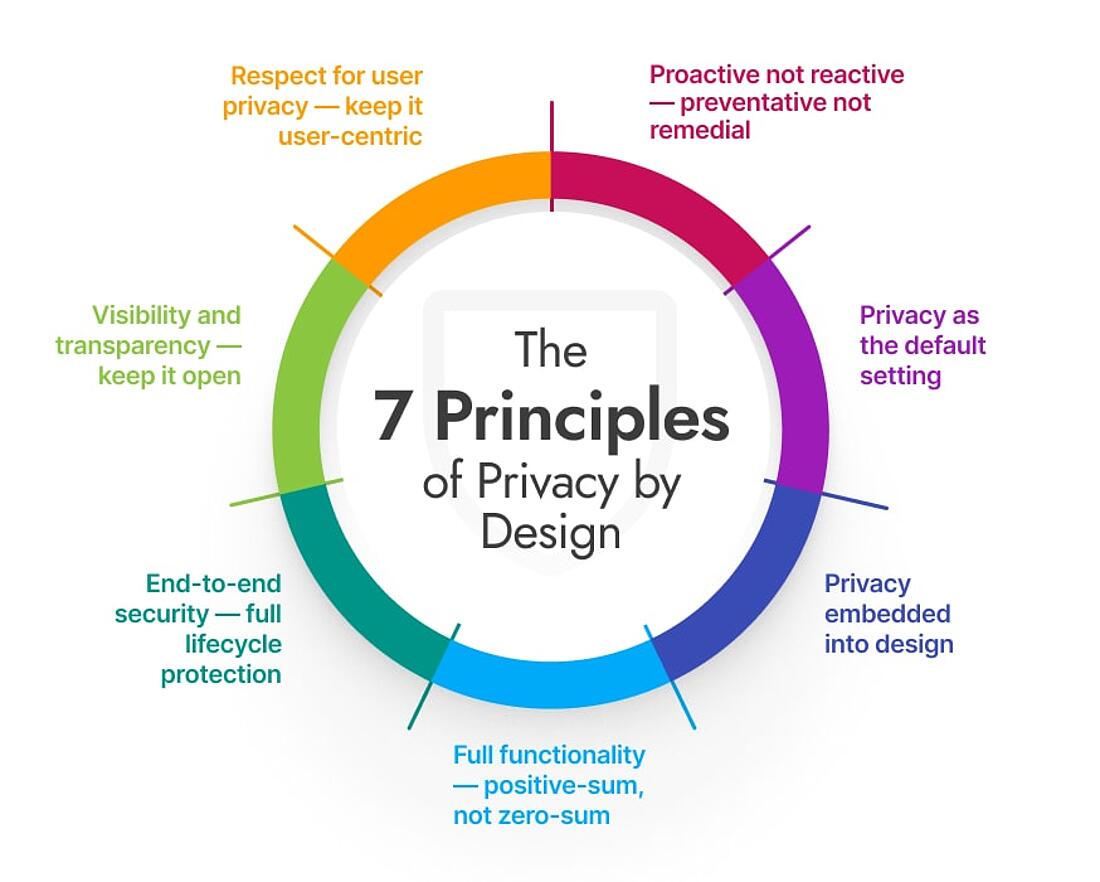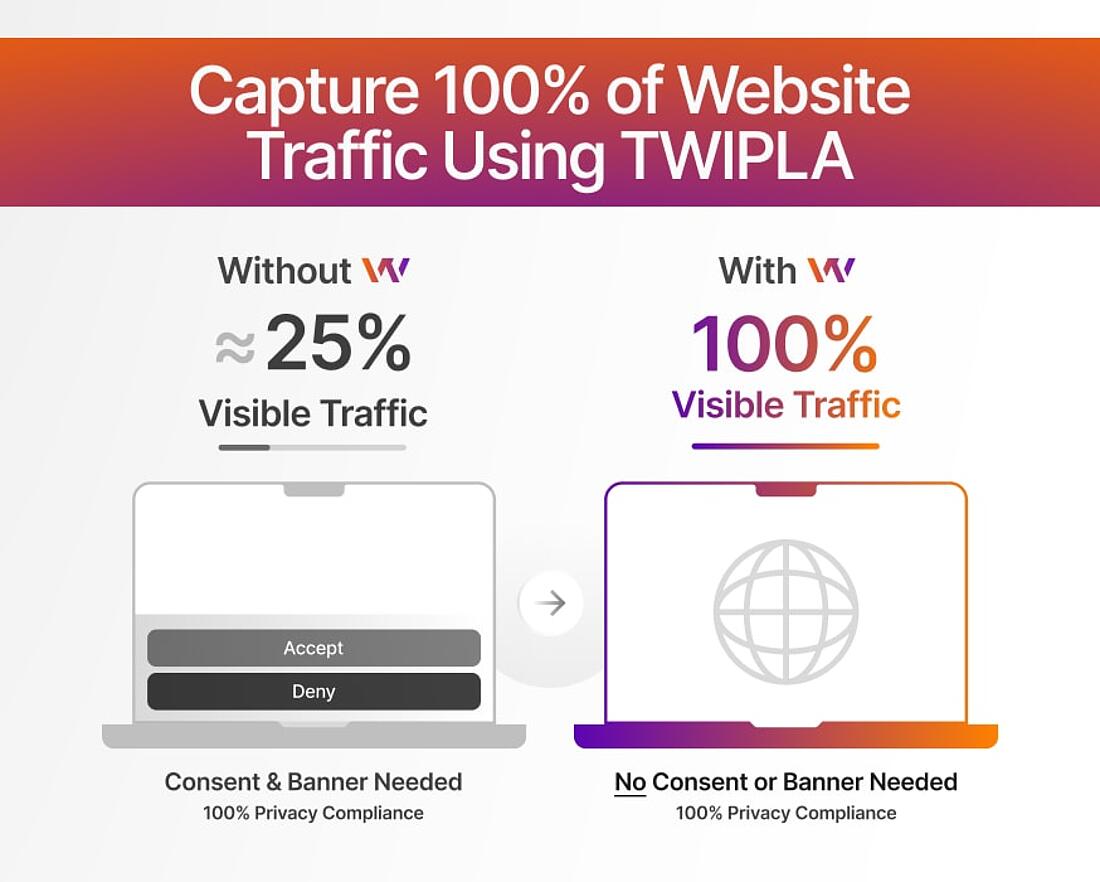- Why Us?
- Features
White Label
For SaaS Platforms & Agencies
Provide our complete analytics suite to your clients, directly within your own interface and with your/their own branding. Discover Analytics-as-a-Service and White Label Analytics. Great benefit, minimal effort.
- Pricing
- White Label
- Success Stories
- ResourcesGetting Started
CONTENTS
- The Privacy Paradox
- How Social Media Fuels the Privacy Paradox
- The Personalization-Privacy Paradox
- The Privacy Paradox with AI
- How to Solve the Privacy Paradox
- The Privacy Paradox in Analytics
- FAQs About the Privacy Paradox
- What is the Privacy Paradox?
- Does the Privacy Paradox Exist?
- What is the Privacy vs Personalization Paradox?
The Privacy Paradox: Torn Between Love and Fear

"Consumers express a lot of concern about their privacy online in surveys. At the same time, very few engage in privacy-protecting activities"
- Leslie Harris, Executive Director of the Center for Democracy and Technology.
This contradiction between word and deed is fascinating and forms the basis of what is known as the Privacy Paradox.
This blog will explore the factors fueling this anomaly, look at some Privacy Paradox examples like social media and personalization, and explore the issues created by emerging technologies.
It will also cover how businesses can lighten the Privacy Paradox for users, along with how privacy in analytics doesn’t have to mean less data.
The Privacy Paradox
→ Why We Say We Care About Privacy But Give It Away So Freely
Here's the Privacy Paradox definition:
It refers to a puzzling behavior in which individuals express genuine concern about data privacy online, yet often take actions that undermine their own privacy.
It's strange, like seeing a doctor smoking outside a respiratory ward.
Despite growing awareness of the risks of data breaches and mass government surveillance, many people continue to naively approach the internet as if it were some idyllic safe space - a digital Canada.
They freely overshare their information, mechanically accept cookie pop-ups, and sign up for services known to track their online activities.
This raises an important question: if we care so much about our privacy, then why do we keep giving it away in the first place?
One reason is obvious - the convenience of online services.
Social media and personalized recommendations rely on data collection, and many will prioritize these benefits over protecting their information.
Furthermore, privacy policies can be difficult for people to understand. Many don’t really know what cookies and tracking even are, but will click “accept” without trying to understand the implications of what they are consenting to.
Another reason is the perception that their online privacy is already compromised.
Data breaches make daily headlines, and with so much data already exposed, many feel it pointless to take extra precautions.
While there may be some truth to this, the sense of inevitability and futility drives behaviors that ultimately put them at greater risk.
Despite this disconnect, the conversation about privacy is evolving.
Increased awareness of data ethics and emerging regulations may encourage users and companies to prioritize privacy, bridging the gap between valuing privacy and protecting it in practice.
But for now, the Privacy Paradox serves as a reminder of the ongoing struggle to protect user data rights - even from themselves.
How Social Media Fuels the Privacy Paradox
Social media is clearly central to many people’s online lives - either they use one of these platforms or frequently discuss why they don’t.
Companies like Facebook, X (Twitter), and TikTok make for great Privacy Paradox examples because of the way they encourage users to share personal information while often downplaying the associated privacy risks.
These platforms thrive on user-generated content, pushing individuals to share their thoughts, photos, and experiences openly. This taps into our inherent desire for social connection and validation from peers but raises questions about social media ethics and the Privacy Paradox.
Moreover, social media companies collect vast amounts of user data from these uploads, using it to deliver targeted advertising and personalized experiences. While users enjoy tailored content, they may be unaware of the extensive data collection necessary to achieve such levels of personalization.
This, ultimately, is the Privacy Paradox social media creates.
Additionally, the rapid pace of online interactions can lead to impulsive sharing without considering the long-term implications for data privacy. People often upload pictures of their credit cards, share their home addresses, and announce when they're going on holiday, inadvertently doxing themselves in dangerous ways.
Social media isn’t going away anytime soon, and users must actively seek the right balance between engagement and privacy - accepting that, regardless of their efforts, social media will continue to exacerbate the disconnect between prioritizing privacy and the actions that compromise it.
The Personalization-Privacy Paradox
→ Are We Sacrificing Too Much to Get the UX We Expect?
The Personalization Privacy Paradox is a subset of the broader Privacy Paradox that warrants special attention.
It highlights the trade-off between the desire for personalized online experiences and the discomfort surrounding data collection.
Personalization is ubiquitous today, from Netflix’s in-app movie recommendations to Facebook’s customized news feeds and tailored email marketing from companies you’ve subscribed to.
These things improve the customer experience, but they only work when people willingly sacrifice their privacy by sharing more information than they might be comfortable with.
This raises critical questions about how much personal information users are willing to sacrifice.
As data breaches and misuse of information become increasingly common and stolen personal data floods the dark web, users must reconsider their engagement with personalized services.
Striking a balance between enjoying tailored experiences and protecting personal data is essential. Increased awareness of data privacy rights and the implementation of robust privacy practices by companies are crucial to navigating this complex landscape, ensuring users do not unwittingly sacrifice too much for the sake of personalization.
The Privacy Paradox with AI
The Privacy Paradox has become even more pronounced with the rise of artificial intelligence (AI).
While these technologies promise enhanced convenience, efficiency, and personalized experiences, AI raises significant concerns for personal data.
From chatbots to recommendation algorithms, AI systems require vast amounts of personal information to function effectively, which can lead to users compromising their privacy for the perceived benefits.
As AI continues to evolve, its ability to analyze and predict user behavior can further blur the lines between personalization and privacy invasion.
This underlines the paradox of sciency and privacy.
Ultimately, people don’t fully understand how their data is used, and this leads to many unintentionally relinquishing their right to privacy. Moreover, the complexity of AI systems makes it challenging for users to grasp the implications of their data sharing.
Responding to the Privacy Paradox with AI necessitates a careful balance between harnessing the power of these tools and protecting individual privacy rights. Increased transparency from companies about data usage and robust regulatory frameworks can also help mitigate the risks associated with AI.
And as consumers become more aware of these issues, it is essential for businesses to prioritize ethical data practices, ensuring that the benefits of AI do not come at the expense of users' privacy.
How to Solve the Privacy Paradox
→ Focus on Building User Trust
While internet users need to educate themselves more about the privacy implications of their online actions, businesses should work to build trust with them.
In practice, this means prioritizing transparency about data practices, and clearly communicating how personal information is collected, stored, and used.
It means simplifying privacy policies, and avoiding jargon wherever possible so as to empower users to make informed decisions about their data.
User trust can also be enhanced by adopting privacy-by design principles.
This involves incorporating robust privacy protections at every stage of product development, ensuring that data minimization and security are fundamental considerations.
Companies can also offer users greater control over their data through customizable privacy settings, allowing individuals to decide what information they want to share.
Engaging users through education about privacy rights and the importance of data protection can further strengthen trust. Organizations should povide resources that help users understand the risks and benefits of sharing their information in a digital environment.
Finally, fostering a culture of accountability within organizations is crucial. Demonstrating a commitment to ethical data practices and responding promptly to privacy breaches can reassure users that their privacy is taken seriously.
By prioritizing trust and transparency, companies can effectively mitigate the Privacy Paradox, leading to more responsible data sharing and improved customer relationships.
The Privacy Paradox in Analytics
→ Meeting Compliance Requirements While Collecting More Website Visitor Data
When it comes to website analytics, the challenge lies in simultaneously complying with data privacy legislation while maximizing data collection to ensure insights accuracy and optimization guidance.
Many businesses assume that stringent compliance with regulations like GDPR and ePrivacy necessitates sacrificing valuable user insights. However, TWIPLA demonstrates that it is possible to adhere to privacy laws and actually collect more data.
Through advanced cookieless tracking technology, clients can leverage analytics without requiring website visitor consent. This innovative approach eliminates the need for cookie banners, allowing visitors who would otherwise choose to remain invisible by rejecting consent banners to become visible data points.
As a result, TWIPLA increases data capture by up to 500%, providing businesses with deeper insights into user behavior and engagement. Additionally, TWIPLA offers three lower-threshold data privacy modes that require consent, allowing companies to customize privacy settings based on the visitor's country of origin.
Importantly, TWIPLA employs a dual tracking code system integrated into the consent banner, enabling businesses to gather essential data from visitors who opt out of tracking in the lower privacy modes by automatically reverting to Maximum Privacy Mode logic.
This innovative approach not only enhances data collection but also empowers businesses to respect user privacy, ultimately bridging the gap between privacy concerns and the need for actionable insights.
FAQs About the Privacy Paradox
What is the Privacy Paradox?
The Privacy Paradox is the contradiction between the concerns that people expresss about the privacy of their data online and their actual behavior, such as oversharing information online or ignoring data policies due to convenuence or perceived helplessness.
Does the Privacy Paradox Exist?
Yes, the Privacy Paradox exists. Many studies show that people often do not act the way they should if they truly cared about their online data privacy, frequently compromising their personal information despite expressing concern.
What is the Privacy vs Personalization Paradox?
This paradox highlights the tension internet users feel between wanting personalized online experiences and being uncomfortable with the data collection required for that personalization.
Share article
Get Started for Free
Gain World-Class Insights & Offer Innovative Privacy & Security












